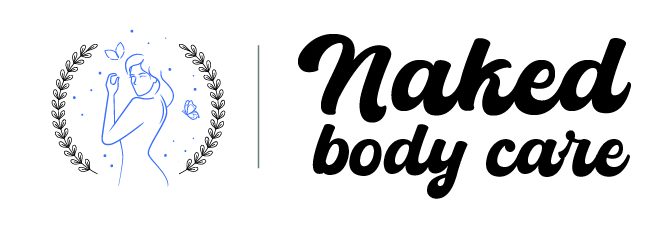Anxiety is more than a mental problem. Stress can also manifest as a physical condition. Itching is one of the symptoms of anxiety. This sensation can be felt anywhere, including your legs, arms, face and scalp. This article will discuss the symptoms, prevention, and treatment of anxiety itch.
What is anxiety itching?
Anxiety or stress can present in many different ways. When you feel anxious, the body will produce a stress response, affecting your nervous system, causing itchy skin or even burning. Anxiety is associated with many types of itch.
In 2019, a study was conducted to examine the levels of anxiety among different age groups ranging from 18-65 years old. In the 18-29 age group, the severity of symptoms increased the most. As participants aged 65 and older approached retirement age, the severity of symptoms decreased. The graph below shows the anxiety levels of different age groups.
Analyse of Anxiety in Different Age Groups
Dr. Elizabeth Lombardo, Ph.D. (CEO, Global Keynote speaker, and Concierge coach), explains, “When worry takes over, your body may go into stress overdrive. It can lead to nerve damage and even sensory symptoms such as skin itching or burning. This sensation may affect your legs, arms, scalp, or face. Stress can cause several physiological changes, including hormonal imbalances and modifications to the neural system, which may result in unpleasant sensations on one or more nerves. These sensations can cause a burning, itchy feeling anywhere on the skin.
Common Symptoms of Anxiety
Anxiety symptoms include:
- Race thoughts
- Over-thinking uncontrollable
- Concentration problems
- Feelings of panic
- Irritability
- Alertness raised
- Sleep disorders
- Changes in appetite
- Dissociation
- Anxiety symptoms can manifest in a variety of ways. 2 ):
- Sweating
- Heavy breathing and rapid breathing
- Hot flashes
- Dry Mouth
- Shaking
- Hair loss
- Fast heartbeat
- Lack of energy
- Dizziness or fainting
- Stomach pain
- ItchingA 2021 study illustrates the rise in anxiety since the COVID-19 Pandemic. The study compares anxiety prevalence rates reported by US adults in the NHIS 2019 survey of 30,915 participants and the UAS 2020 survey of 8,022 respondents. Participants reported increased anxiety symptoms between 8.1% and 21.4% from 2019 to 2020. While the levels fluctuated yearly, they were at least 3% higher than 2019 until 2020.
Itchy skin symptoms
- If you scratch too much, itchy skin can cause redness, skin breakdown, bleeding, and infection. Eczema sufferers can irritate their skin excessively and cause open wounds. These open wounds may become infected, requiring treatment with antibiotics or steroids.
What Causes Itching in Anxiety?
- Itching and anxiety are not always related. Anxiety is rarely the cause of itching, but other symptoms can accompany it. It can be challenging to determine the cause of anxiety-induced itchiness. A comprehensive medical exam may be required. These are the most common reasons for anxiety-induced itchiness:
- Stress Hives: Hives occur when the immune system reacts with allergens. They can be caused by anxiety and stress ( 3).
- Heat Rash: Anxiety increases sweating and causes a rash. These rashes, while harmless, are incredibly itchy and can last up to two weeks.
- Triggered itch: While anxiety is rare, it can worsen pre-existing conditions. Anxiety and stress are closely linked to skin conditions such as eczema and psoriasis.
- Craving Made Worse: Being anxious can aggravate an existing itch. A minor irritation can be magnified and seem much worse. This can be associated with similar sensations to itching, such as tingling.
How to Treat Anxiety Itching
- All chronic itch sufferers should understand the cycle of itch and anxiety and keep it under control ( 1).
- You will first need to identify the source of your stress. A health expert can help you reduce anxiety and the urge to scratch.
- Here are some natural remedies to help you relieve anxiety-related itching.
-
- To prevent infection, keep your fingernails trimmed.
- Use calamine cream or a corticosteroid cream available over the counter.
- Avoid rubbing clothing, hot water baths, direct sunlight, and other irritations.
- Use a fragrance-free moisturizer every day.
- Use a humidifier.
- Wear gloves or cover the skin to prevent scabbing.
-
When should you see a doctor?
- You should consult a physician if you:
-
-
- Anxiety or itching can interfere with daily life and cause skin damage.
- Itching that lasts more than two weeks and doesn’t improve with self-care.
- Itching can be accompanied by fever or night sweats. Weight loss may also occur.
- Blisters form when the itching is severe.
-
-
- You may be referred to a dermatologist to perform skin tests or a mental health specialist to treat anxiety problems.
The Final Takeaway
- Itching and anxiety can occur together, no matter which comes first. Worry and stress can trigger eczema, psoriasis, or cause hives. Anxiety is often accompanied by uncomfortable symptoms such as nervousness, irritation, and discomfort. Under the supervision of a doctor, you can treat this type of itching with calamine cream, moisturizer, or corticosteroid cream. Itching that is excessive and without apparent cause could be a sign of another health issue. Consult a doctor if this happens for an accurate diagnosis and treatment.


